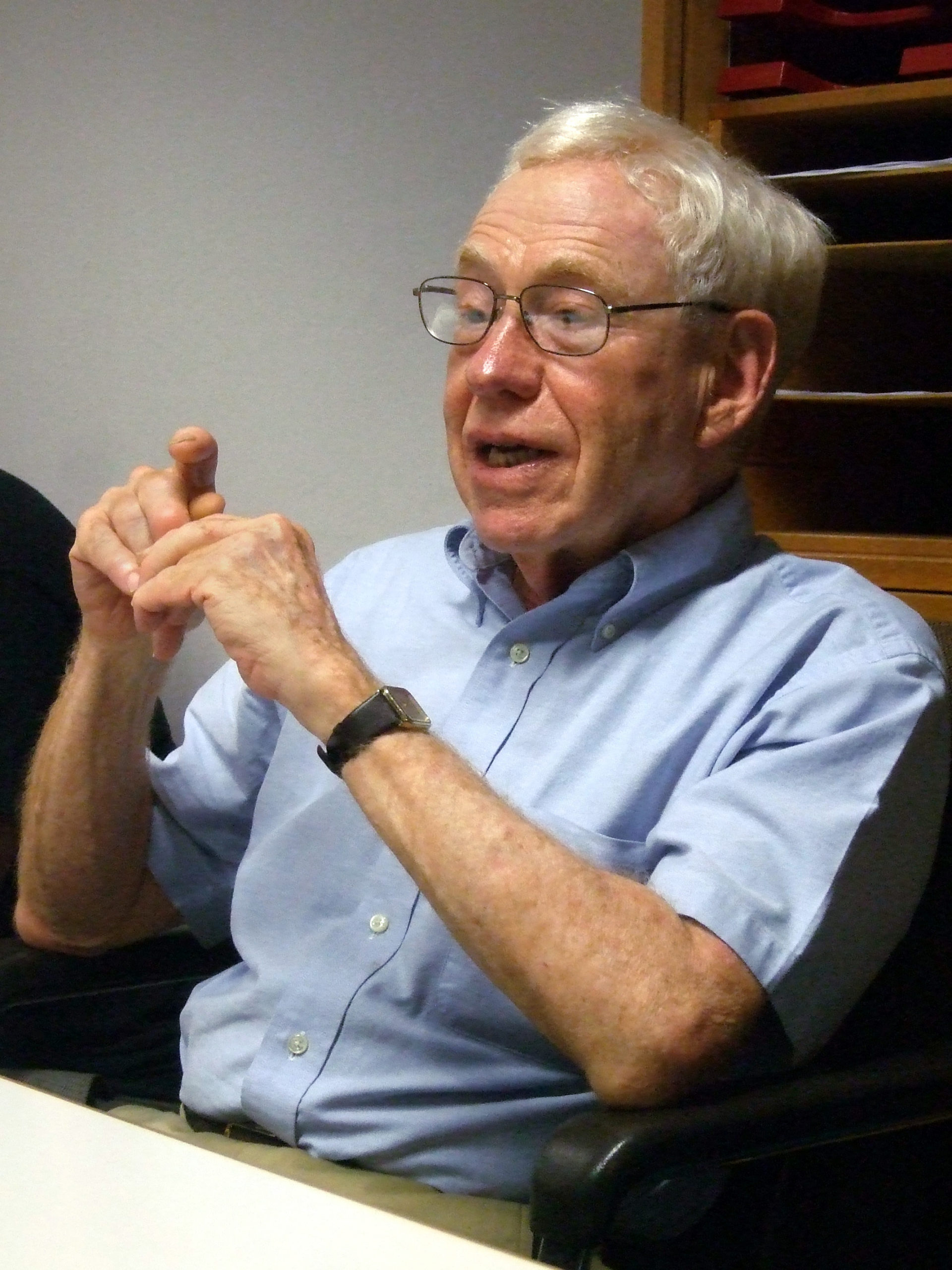Back in 1997, UC Berkeley philosopher Hubert L. Dreyfus offered a diagnosis of the World Wide Web that, in retrospect, predicted with virtually 100 percent accuracy our socially networked democracy’s current predicament. Remarkably, he did this by applying to the Web as it was then an analysis of “the Press” and “the Public” worked out by Søren Kierkegaard in 1846. (See Kierkegaard’s The Present Age.)
Like so many of his colleagues and friends, I was interested in what Bert had to say about anything, and heard him present these views at the time. They eventually appeared in 2001 his On the Internet, which was revised and expanded in 2007 – still too early to understand the impact of social media. Although the book was well-reviewed, it didn’t (so far as I knew) elicit a sustained response, and as the years went by Bert’s reworking of Kierkegaard’s analysis slipped my mind. Recently, though, almost by accident, I ran into the transcript of a lecture he gave on the topic.
Kierkegaard, Bert began, was skeptical of what political philosophers and theorists of democracy call the public sphere. The public “took an interest in everything but were not committed to anything. [Kierkegaard] attributed this growing cultivation of curiosity and the consequent failure to distinguish the important from the trivial to the Press. Its new massive distribution of desituated information, he held, was making every sort of information immediately available to anyone, thereby producing an anonymous, detached spectator.”
Bert was struck by how Kierkegaard’s worries about the Press applied to the Web, but more importantly he saw how the Web would exacerbate the most troubling features of the Press. “[T]he essential feature of this freedom to have an opinion on everything is that people do not take responsibility for their opinion. The Press speaks for the Public but no one stands behind the views the public holds.” The public loves talk for talk’s sake, and it becomes a fantasy of action that is safer and more immediately gratifying than the real thing. But the Web is worse: “Just as no individual assumes responsibility for the consequences of the information in the Press, no one assumes responsibility for even the accuracy of the information on the Web.” Moreover, “in the name of protecting privacy, … [the] net [becomes] a perfect medium for slander and innuendo. Kierkegaard could have been speaking of the Internet when he said of the Press: ‘It is frightful that someone who is no one … can set any error into circulation with no thought of responsibility and with the aid of this dreadful disproportioned means of communication’.” (See Søren Kierkegaard, Journals and Papers, Vol. 2, p. 481.)
Bert saw, with Kierkegaard’s help, that the Web would encourage the formation of advocacy organizations composed of amateurs at best and crackpots at worst. “Without rootedness in particular problems all that remains for the interest group commentator is endless gossip. In such groups anyone can have an opinion on anything and all are only too eager to respond to the equally deracinated opinions of other anonymous amateurs who post their views from nowhere.” No experience or skill is required to enter the conversation:
Indeed, the most serious danger of the Public Sphere, as illustrated on the World Wide Web, may well be that it undermines expertise. Learning a skill requires interpreting the situation as being of a sort that requires a certain action, taking that action, and learning from one’s success or failure. Studies of skill acquisition have shown that, unless the outcome matters and unless the person developing the skill is willing to accept the pain that comes from failure and the elation that comes with success, the learner will … never achieve mastery. Since expertise can only be acquired through involved engagement with actual situations, what is lost in disengaged discussion is precisely the conditions for acquiring mastery or practical wisdom.
Kierkegaard feared that “Europe will come to a standstill at the press and remain at a standstill as a reminder that the human race has invented something which will eventually overpower it.” Kierkegaard, Bert says, “already saw that the ultimate activity the Internet would encourage would be speculation on how big it is, how much bigger it will get, and what, if anything, all this means for our culture.”
The problems of the kind of “press” and “public sphere” created by social media, Bert suggested, are different from what people like Tocqueville feared, such as the tyranny of the majority. It isn’t only that dissenting views are drowned out or forced to conform to the majority – although of course that happens too. It’s that all views are equally legitimate and illegitimate, neither one nor the other, and are deemed worth talking about merely because someone is talking about them.
I would add that Kierkegaard/Dreyfus’s analysis also shows the inadequcy of J.S. Mill’s view that the marketplace of ideas is self-correcting. Ideas, especially ideas about politics, aren’t correctable by internal debate alone; they must be tested against reality. But the “reality-based community” can’t compete with the satisfactions of endless and costless fantasy and speculation that the social networks offer.
For Kierkegaard/Dreyfus, the solution is to “cancel this risk-free attraction and thereby support and encourage strong identities in the real world where risk of failure and disappointment is inevitable.” This may seem to suggest that there is a silver lining, however thin, in people acting on their internet-bred fantasies. But it’s one thing for an individual to withdraw from the networks, get involved in the real world, and learn from his mistakes, and a very different thing for a large part of a society to do so. Unfortunately, we seem to be having more and more opportunities to observe the learning process in action.

Hubert L. Dreyfus, 1929-2017.

